
Phú Thanh: The Hidden Gem of Hue
Phú Thanh in Hue is a serene and picturesque neighbourhood that offers a unique glimpse into the traditional Vietnamese way of life. Nestled away from the bustling city centre, Phú Thanh is an oasis of calm, adorned with lush greenery and charming, narrow lanes. The neighbourhood is perfect for those who wish to explore the rich culture and heritage of Hue without the crowds. Phú Thanh is home to several ancient pagodas and temples that provide a tranquil retreat for visitors. These sacred sites not only offer spiritual solace but also showcase stunning architecture and intricate carvings. The neighbourhood's local markets are another highlight, where you can immerse yourself in the daily life of the residents. Here, you will find a variety of fresh produce, local delicacies, and handmade crafts that make for perfect souvenirs. One of the most enchanting aspects of Phú Thanh is its close-knit community. The locals are warm and welcoming, often inviting tourists to join them in traditional activities such as cooking classes or tea ceremonies. This sense of community extends to the neighbourhood's cozy cafes and family-run restaurants, where you can savor authentic Vietnamese cuisine while enjoying the serene surroundings.
Local tips in Phú Thanh
- Visit the local markets in the morning for the freshest produce and a lively atmosphere.
- Take a guided tour of the ancient pagodas to learn about their history and significance.
- Join a cooking class to learn how to prepare traditional Vietnamese dishes.
- Spend time in the neighborhood's cafes to experience the local way of life and enjoy authentic cuisine.
Phú Thanh: The Hidden Gem of Hue
Phú Thanh in Hue is a serene and picturesque neighbourhood that offers a unique glimpse into the traditional Vietnamese way of life. Nestled away from the bustling city centre, Phú Thanh is an oasis of calm, adorned with lush greenery and charming, narrow lanes. The neighbourhood is perfect for those who wish to explore the rich culture and heritage of Hue without the crowds. Phú Thanh is home to several ancient pagodas and temples that provide a tranquil retreat for visitors. These sacred sites not only offer spiritual solace but also showcase stunning architecture and intricate carvings. The neighbourhood's local markets are another highlight, where you can immerse yourself in the daily life of the residents. Here, you will find a variety of fresh produce, local delicacies, and handmade crafts that make for perfect souvenirs. One of the most enchanting aspects of Phú Thanh is its close-knit community. The locals are warm and welcoming, often inviting tourists to join them in traditional activities such as cooking classes or tea ceremonies. This sense of community extends to the neighbourhood's cozy cafes and family-run restaurants, where you can savor authentic Vietnamese cuisine while enjoying the serene surroundings.
Iconic landmarks you can’t miss
Hue Historic Citadel
Discover the grandeur and historical significance of Hue Historic Citadel, a UNESCO World Heritage site in Vietnam's cultural heart.
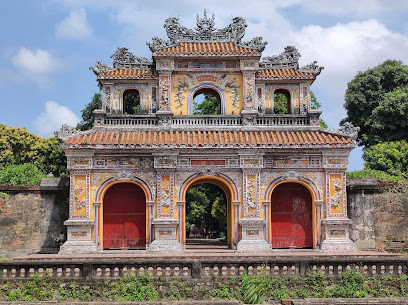
Đại Nội
Uncover the royal heritage of Đai Nội, a remarkable historical site in Hue, Vietnam, rich with culture, architecture, and stories of the Nguyen Dynasty.
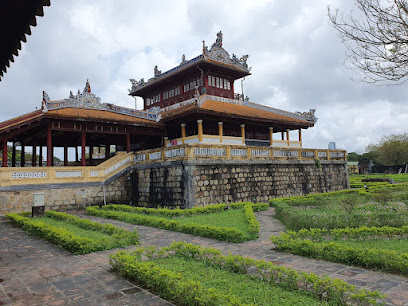
Hue Museum of Royal Antiquities
Explore the Hue Museum of Royal Antiquities, a cultural treasure trove showcasing the rich history of the Nguyen Dynasty and its royal artifacts.
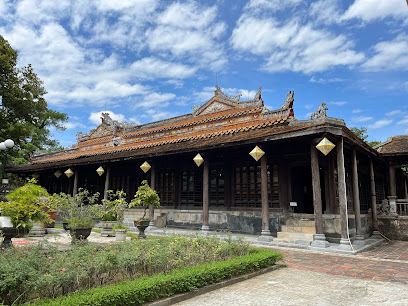
Phu Van Lau
Discover the stunning Phu Van Lau, a historical marvel in Hue, Vietnam, showcasing the rich imperial heritage and breathtaking views of the Perfume River.
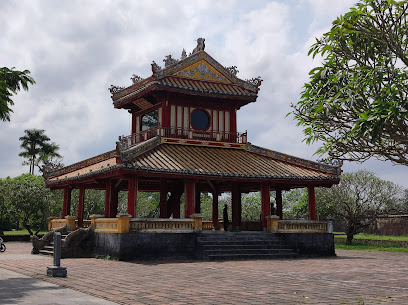
Temple of Literature
Explore the Temple of Literature in Thua Thien Hue, a historical landmark that embodies Vietnam's educational heritage and cultural richness.
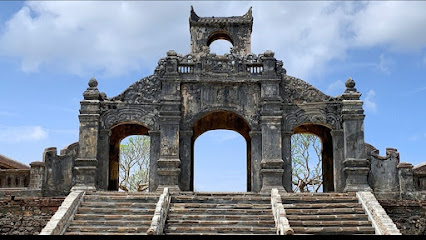
Đài Tưởng niệm Chiến Sĩ Trận Vong
Explore Đài Tưởng Niệm Chiến Sĩ Trận Vong, a serene memorial in Huế honoring Vietnam's fallen soldiers amidst scenic gardens and rich history.
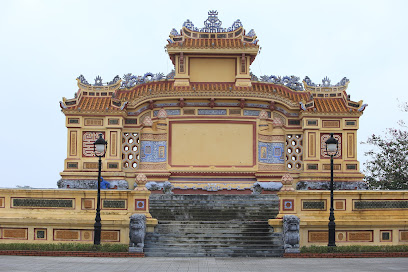
Hue Imperial City
Explore the majestic Hue Imperial City, where Vietnam's royal history and stunning architecture come together in a UNESCO World Heritage site.
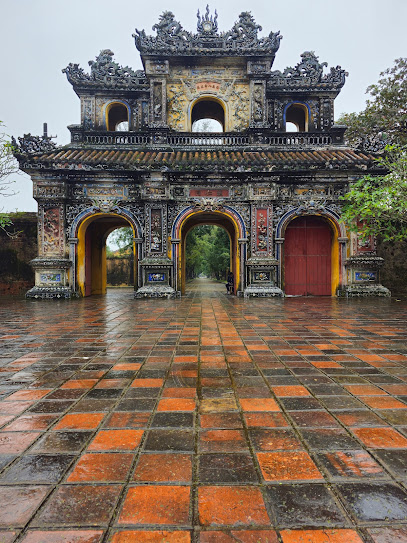
Luong Dinh Pavilion
Discover the serene beauty and cultural significance of Luong Dinh Pavilion in Hue, Vietnam, a must-visit tourist attraction amidst lush landscapes.
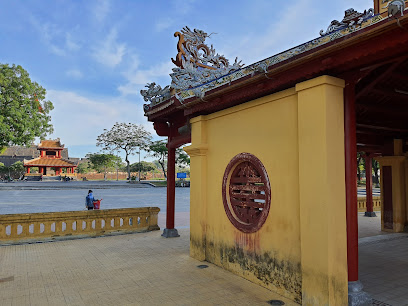
The Flag Tower
Discover the iconic Flag Tower in Hue, a historical landmark that embodies Vietnam's rich cultural heritage and offers breathtaking views of the Imperial City.
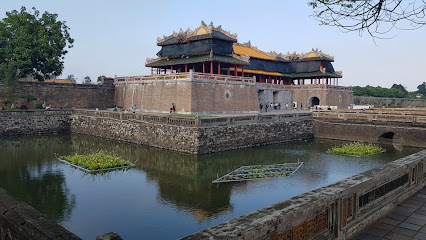
Bến đò Thừa Phủ
Discover the historical and cultural richness of Bến Đò Thừa Phủ, a must-visit landmark along the enchanting Hương River in Thừa Thiên Huế, Vietnam.
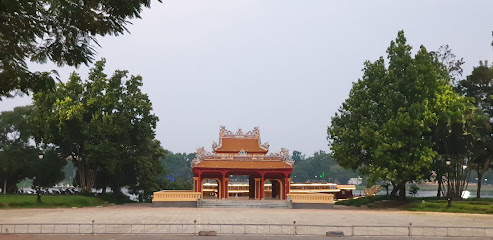
Unmissable attractions to see
Vong Canh Hill
Discover the serene beauty and historical significance of Vong Canh Hill in Hue, Vietnam—a perfect retreat for nature lovers and history buffs alike.
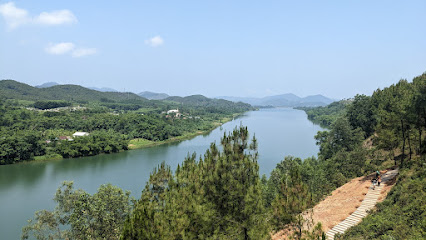
Hue Night Walking Street
Experience the vibrant energy of Hue Night Walking Street, where delicious street food meets local culture in a charming evening atmosphere.
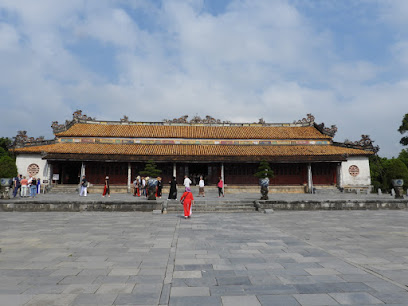
Hue Museum of Royal Antiquities
Explore the legacy of Vietnam's Nguyen Dynasty at the Hue Museum of Royal Antiquities, showcasing royal treasures and cultural heritage in an enchanting setting.
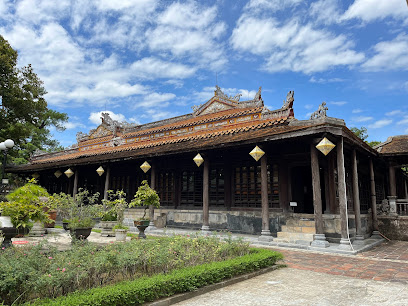
Phu Van Lau
Explore the historical elegance of Phu Van Lau, a captivating landmark in Hue, Vietnam, showcasing the rich heritage of the Nguyen Dynasty.
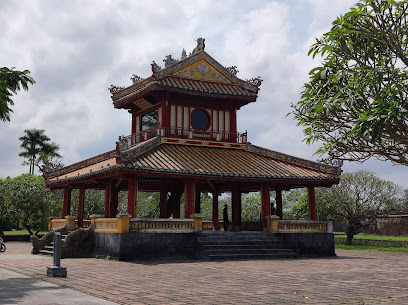
Dragon boats
Explore the vibrant tradition of dragon boat racing in Hue, Vietnam, and immerse yourself in the beauty of the Perfume River.
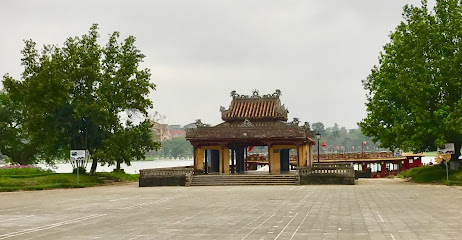
Tây Thành Thủy Quan
Explore the historical beauty of Tây Thành Thủy Quan, a captivating tourist attraction in Huế, Vietnam, rich in culture and architectural splendor.
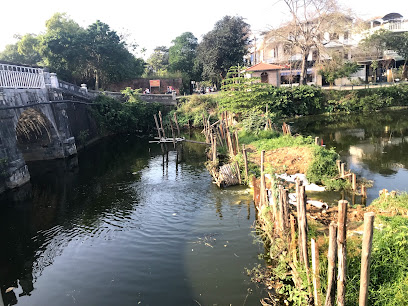
Essential places to dine
Madam Thu Restaurant - Taste of Hue
Discover authentic Vietnamese cuisine at Madam Thu Restaurant in Hue - a true taste of tradition and flavor.
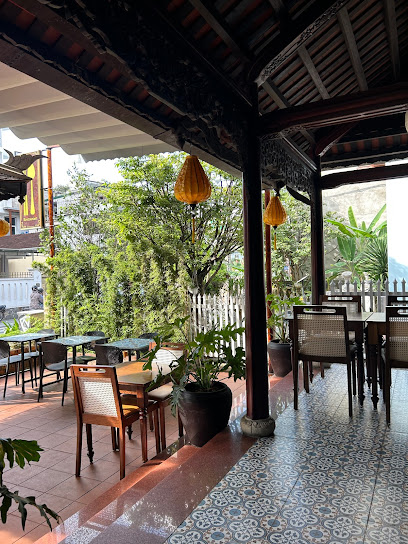
Nook Eatery-Breakfast to Burgers
Discover the flavors of Vietnam at Nook Eatery – your go-to spot for breakfast delights and gourmet burgers in Hue.
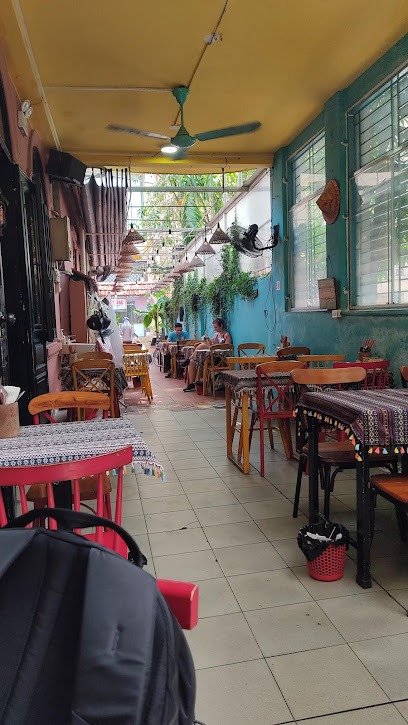
Nina's Cafe-Vietnamese Restaurant
Experience authentic Vietnamese flavors at Nina's Cafe in Hue - where every dish tells a story.
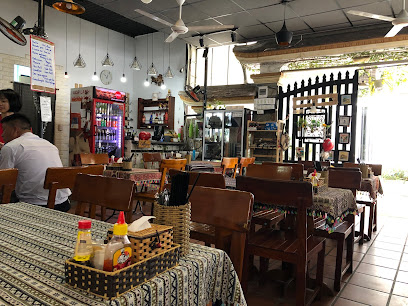
Little Italy Restaurant - Nhà hàng Ý
Experience authentic Italian flavors in the heart of Huế at Little Italy Restaurant - where every meal is a celebration.
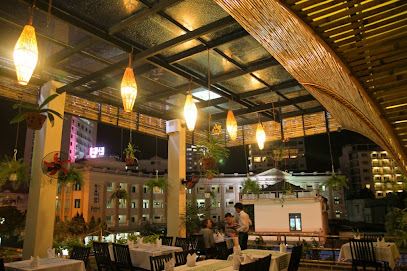
Bistro La Carambole
Experience authentic Vietnamese cuisine at Bistro La Carambole in Hue - where tradition meets innovation in every dish.
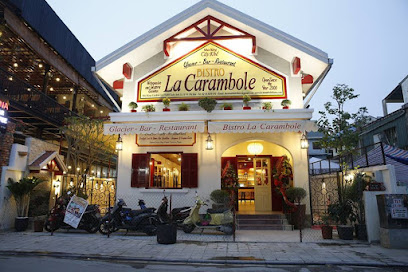
Zucca Restaurant
Experience a unique fusion of Vietnamese and Italian cuisine at Zucca Restaurant in Huế—where every dish is crafted with passion and authenticity.
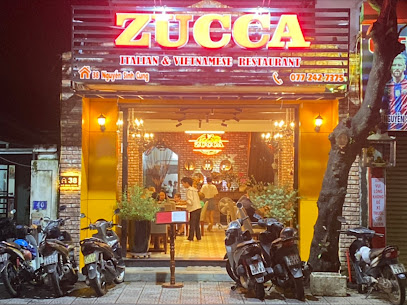
Nhà Hàng Spice Việt Huế
Experience authentic Vietnamese cuisine with a modern twist at Spice Việt Huế - where tradition meets innovation.
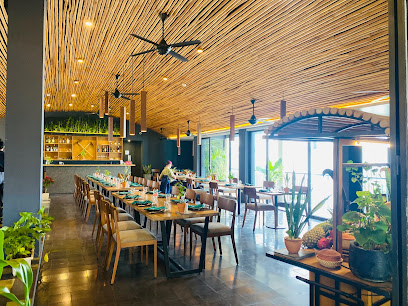
Serene cuisine restaurant
Experience authentic Vietnamese flavors at Serene Cuisine Restaurant in Huế - a culinary journey through tradition and taste.
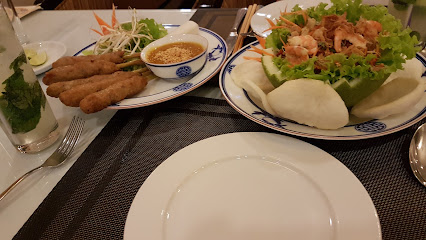
Cococlub Hue restaurant brasserie vietnamese & western
Experience the perfect blend of Vietnamese and Western cuisines at Cococlub Hue – where culinary tradition meets modern flair.
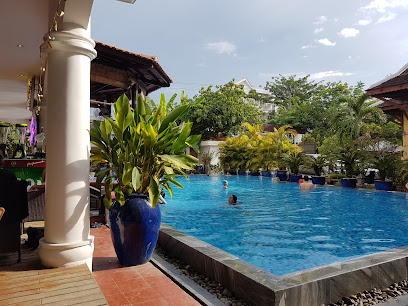
Phước Thạnh Garden Restaurant
Experience authentic Vietnamese flavors amidst serene gardens at Phước Thạnh Garden Restaurant in Huế.
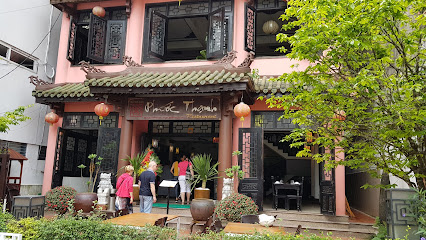
Markets, malls and hidden boutiques
CrowDow Vintage Store
Explore the unique and nostalgic treasures at CrowDow Vintage Store in Huế, Vietnam - a vintage lover's paradise!
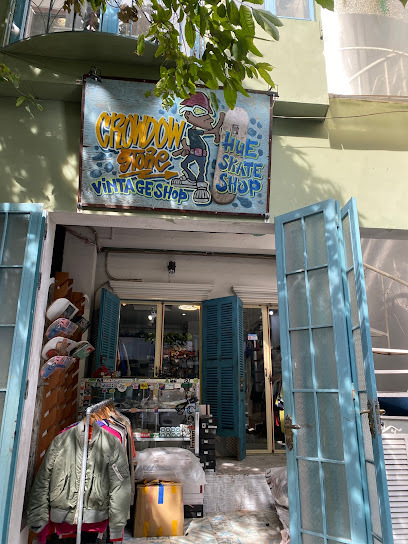
Quà Lưu Niệm Huế
Discover the essence of Huế at Quà Lưu Niệm Huế, where unique souvenirs and local delicacies await every traveler.
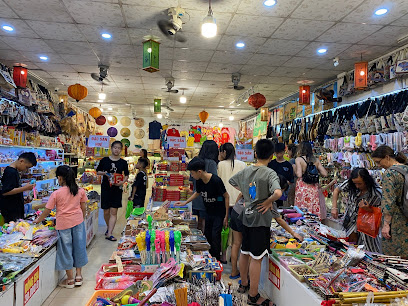
Rintage Clothing Vintage 2Hand Store
Explore sustainable fashion and unique vintage finds at Rintage Clothing in Hue, Vietnam—where every piece has a story.
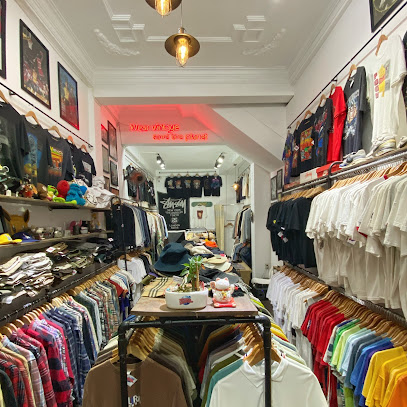
TOKYOLIFE Huế 1
Experience the best of Vietnamese fashion at TOKYOLIFE Huế 1, where modern shopping meets cultural heritage in the heart of Huế.
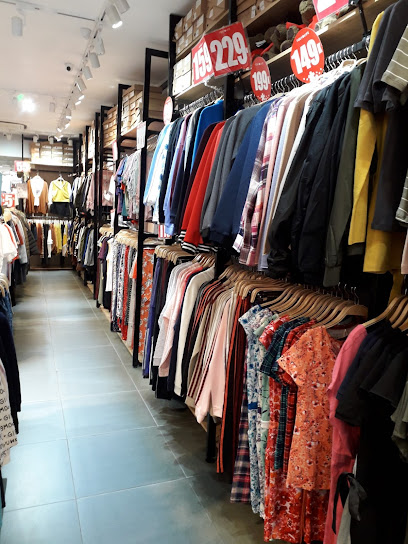
Bleu de Hue
Explore the hidden gems of Hue, Vietnam at Bleu de Hue, where history and culture converge in a charming antique store.
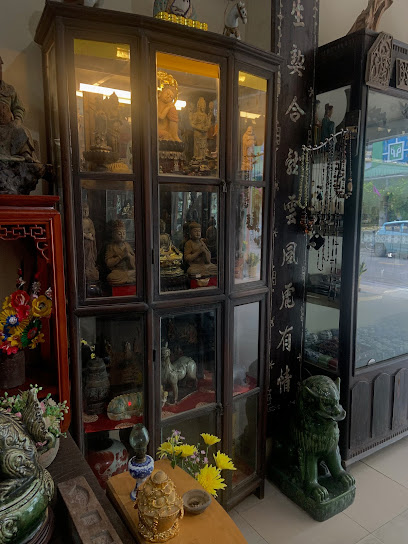
Moss Huế - Phụ kiện Quà tặng
Explore Moss Huế for unique gifts, cosmetics, and fashion accessories in the heart of Vietnam's cultural jewel, Huế.
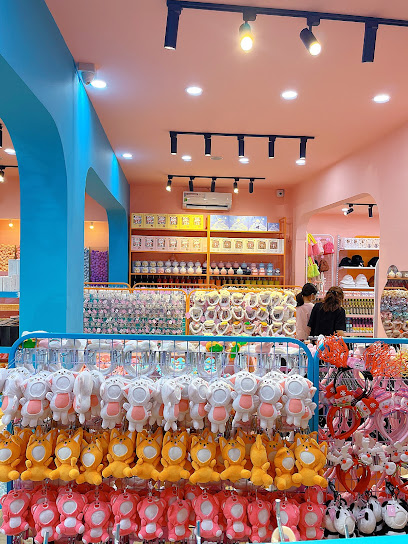
Cửa hàng phụ kiện và quà tặng LitiBox
Discover unique Vietnamese souvenirs and local artisan products at LitiBox, the charming gift shop in the heart of Huế.
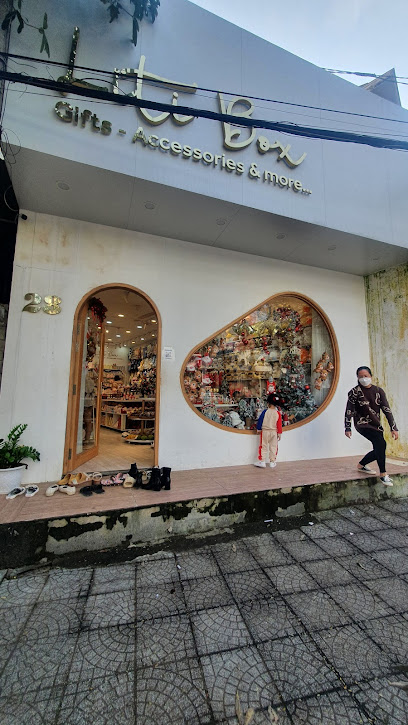
FRIENDLY Store
Explore the trendy FRIENDLY Store in Hue for unique fashion pieces that blend local culture with modern style, perfect for souvenirs and personal treasures.
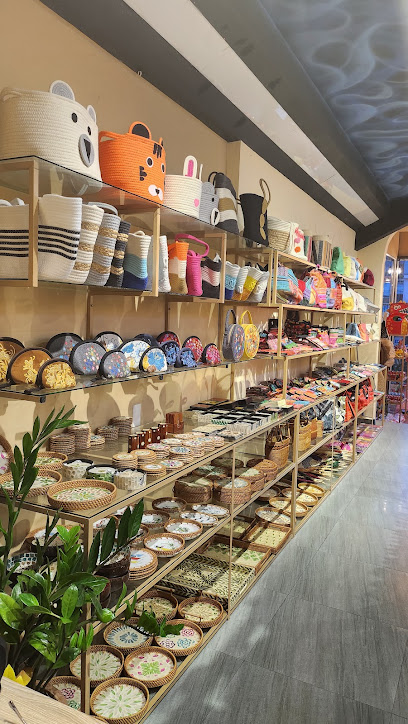
Garden House Village Hue Vietnam
Discover authentic Vietnamese flavors and local products at Garden House Village, a vibrant grocery store in the heart of Hue, Vietnam.

Handmade Vietnamese Clothes
Discover unique handmade clothing in Huế, Vietnam, blending tradition and contemporary design for the discerning traveler.

Essential bars & hidden hideouts
DMZ Bar & Restaurant
Discover the lively DMZ Bar & Restaurant in Huế, where local flavors meet a vibrant atmosphere for an unforgettable dining experience.
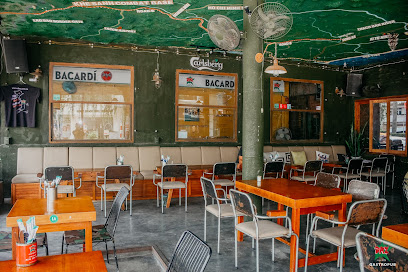
Secret Lounge Hue
Discover the charm of Secret Lounge Hue, where exquisite Vietnamese cuisine meets creative cocktails in a cozy ambiance.
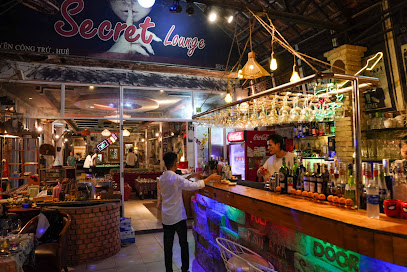
Brown Eyes Bar
Experience the vibrant nightlife of Huế at Brown Eyes Bar, where great drinks and lively entertainment await every visitor.
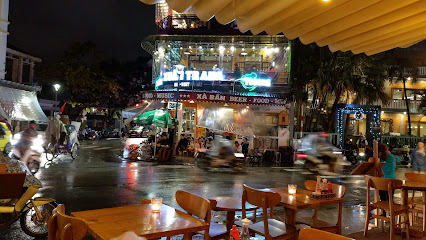
Century Beer Garden
Discover the lively ambiance of Century Beer Garden in Huế, Vietnam—an ideal spot for drinks and socializing amidst lush surroundings.
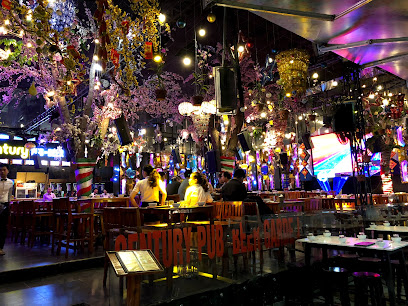
New DTV BAR
Experience the vibrant nightlife of Huế at New DTV BAR, where creative cocktails and great music create unforgettable memories.
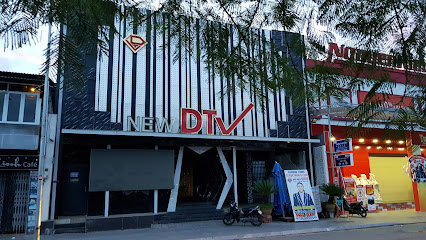
Đông Bar - Unlock The Vibes
Discover the vibrant nightlife of Huế at Đông Bar, where local culture meets unforgettable experiences.
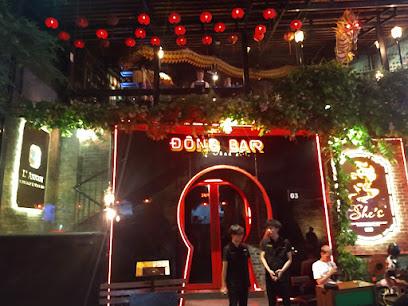
Sky Bar Vincom Plaza Huế
Experience breathtaking views and vibrant nightlife at Sky Bar Vincom Plaza Huế, the perfect rooftop escape for tourists.
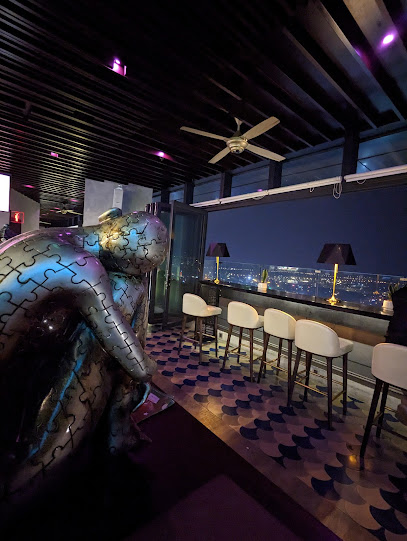
Méw
Discover Méw, a vibrant bar in Huế offering a unique blend of local flavors and a welcoming atmosphere for an unforgettable night out.
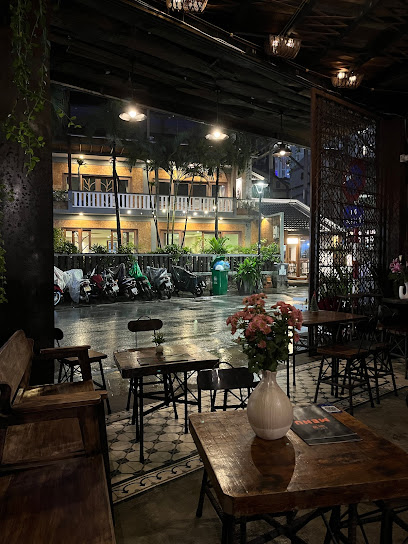
Xà Bần Bar
Experience the vibrant nightlife of Huế at Xà Bần Bar, where tradition meets modernity in every drink.
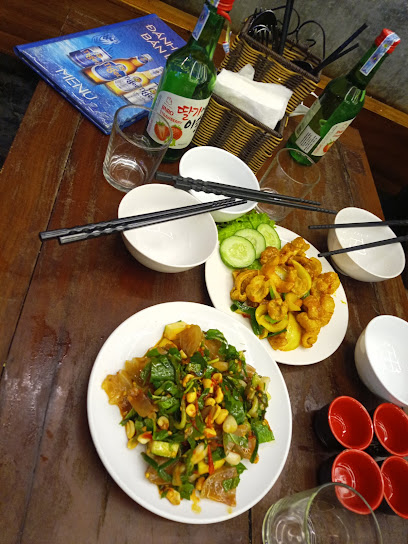
ALITA - Lounge
Discover the vibrant nightlife of Hue at ALITA - Lounge, where cocktails and ambiance create unforgettable moments.
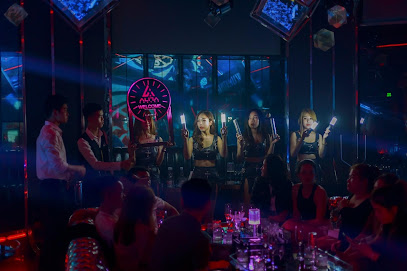
Local Phrases
-
- HelloXin chào
[sin chow] - GoodbyeTạm biệt
[tam byet] - YesCó
[kaw] - NoKhông
[kawng] - Please/You're welcomeLàm ơn
[lam uhn] - Thank youCảm ơn
[kam uhn] - Excuse me/SorryXin lỗi
[sin loy] - How are you?Bạn khỏe không?
[ban kwee kawng] - Fine. And you?Khỏe. Còn bạn?
[kwee. kawn ban] - Do you speak English?Bạn có nói tiếng Anh không?
[ban kaw noi tyeng anh kawng] - I don't understandTôi không hiểu
[toy kawng hye-uh]
- HelloXin chào
-
- I'd like to see the menu, pleaseTôi muốn xem menu, vui lòng
[toy moon sem menu, vui long] - I don't eat meatTôi không ăn thịt
[toy kawng un tit] - Cheers!Chúc sức khỏe!
[chuk suk kwee] - I would like to pay, pleaseTôi muốn thanh toán, vui lòng
[toy moon thanh toan, vui long]
- I'd like to see the menu, pleaseTôi muốn xem menu, vui lòng
-
- Help!Cứu!
[kew] - Go away!Đi đi!
[dee dee] - Call the Police!Gọi cảnh sát!
[goy kan saht] - Call a doctor!Gọi bác sĩ!
[goy bahk see] - I'm lostTôi lạc đường
[toy lak doong] - I'm illTôi bệnh
[toy benh]
- Help!Cứu!
-
- I'd like to buy...Tôi muốn mua...
[toy moon mwa] - I'm just lookingTôi chỉ xem
[toy chi sem] - How much is it?Bao nhiêu tiền?
[bow nyew tyen] - That's too expensiveĐắt quá
[dat kwa] - Can you lower the price?Bạn có thể giảm giá không?
[ban kaw tye jam za kawng]
- I'd like to buy...Tôi muốn mua...
-
- What time is it?Bây giờ là mấy giờ?
[bay zow la mye zow] - It's one o'clockMột giờ
[mote zow] - Half past (10)Mười giờ ba mươi
[mooee zow ba mooee] - MorningBuổi sáng
[bwoy sang] - AfternoonBuổi chiều
[bwoy chieu] - EveningBuổi tối
[bwoy toy] - YesterdayHôm qua
[hom kwa] - TodayHôm nay
[hom nay] - TomorrowNgày mai
[ngay mai] - 1Một
[mote] - 2Hai
[hay] - 3Ba
[ba] - 4Bốn
[bon] - 5Năm
[nam] - 6Sáu
[sow] - 7Bảy
[bay] - 8Tám
[tam] - 9Chín
[chin] - 10Mười
[mooee]
- What time is it?Bây giờ là mấy giờ?
-
- Where's a/the...?Đâu là...
[dow la] - What's the address?Địa chỉ là gì?
[dia chi la yee] - Can you show me (on the map)?Bạn có thể chỉ cho tôi (trên bản đồ) không?
[ban kaw tye chi cho toy tren ban do kawng] - When's the next (bus)?Khi nào là chuyến tiếp theo (xe buýt)?
[khee now la chuyen tyep teo se bwuit] - A ticket (to ....)Một vé (đến ...)
[mote vee den]
- Where's a/the...?Đâu là...
History of Phú Thanh
-
Phú Thanh, situated on the banks of the Perfume River, has its roots in the early Nguyen Dynasty when it began as a small fishing village. The strategic location of Hue as the imperial capital of Vietnam from 1802 to 1945 meant that Phú Thanh played a role in the daily life and economy of the city, particularly in trade and agriculture.
-
During the Nguyen Dynasty, Phú Thanh was influenced by the cultural and architectural styles of the period. The area became known for its traditional crafts and local cuisine, contributing to the rich tapestry of Hue’s cultural identity. The neighborhood was also home to artisans who created handmade goods, which were vital to the local economy and cultural preservation.
-
The Vietnam War had a profound effect on Phú Thanh, as it did on all of Hue. The neighborhood experienced significant destruction during the Tet Offensive in 1968, which saw intense fighting throughout the city. This turmoil disrupted the community and altered the landscape, leaving lasting scars that would take decades to heal.
-
Following the end of the Vietnam War in 1975, Phú Thanh underwent a period of reconstruction. Efforts were made to restore the community and revitalize its economy. Local initiatives focused on preserving traditional crafts and enhancing agricultural practices, which helped to revive the neighborhood's cultural heritage.
-
In recent years, Phú Thanh has embraced tourism, showcasing its historical sites, traditional cuisine, and vibrant local culture. The neighborhood is increasingly recognized for its contributions to Hue’s overall charm, attracting visitors who seek to experience authentic local life amidst the backdrop of historical significance.
Phú Thanh Essentials
-
Phú Thanh is easily accessible from other neighborhoods in Hue. From the city center, you can take a taxi or a motorbike taxi (xe ôm) for a quick ride, which usually takes about 10-15 minutes. Public buses also run regularly to Phú Thanh, with several stops in the area. If you are coming from the Hue Railway Station, a taxi or ride-sharing service would be the most convenient option, taking approximately 20 minutes.
-
Phú Thanh is a compact neighborhood, making it easy to explore on foot or by bicycle. Renting a bicycle is a popular option, with several rental shops available. Taxis and motorbike taxis are also accessible for longer distances or if you prefer not to walk. Public buses connect Phú Thanh to other parts of Hue, but the schedules may not always be reliable.
-
Phú Thanh is generally safe for tourists, but standard precautions should be taken. Avoid displaying valuable items such as expensive cameras or jewelry, particularly in crowded areas. While violent crime is rare, petty theft can occur, especially near markets. It's advisable to stay away from poorly lit streets at night and be cautious in areas with large gatherings.
-
In case of emergencies, dial 113 for police assistance, 115 for medical emergencies, and 114 for fire services. The local hospitals and clinics in Hue are equipped to handle various medical situations, and it's advisable to have travel insurance that includes emergency medical coverage. For minor health issues, local pharmacies can provide over-the-counter medications.
-
Fashion: Do dress modestly, particularly when visiting temples or pagodas. Avoid revealing clothing. Religion: Do respect local customs; when entering religious sites, remove your shoes and speak quietly. Public Transport: Do give your seat to elderly passengers; don’t engage in loud phone conversations. Greetings: Do greet locals with a smile and a nod; don’t assume everyone speaks English. Eating & Drinking: Do try local street food and accept food offerings; don’t waste food or leave your plate unfinished, as it's considered impolite.
-
To experience Phú Thanh like a local, visit the bustling markets in the area, where you can find fresh produce and traditional snacks. Engage with vendors, who are often eager to share stories about their goods. Don’t hesitate to try local specialties, such as bánh bèo and bánh khoái. Take a stroll along the Perfume River to enjoy the scenic views, especially at sunset. Joining a cooking class can also provide insight into the local cuisine and culture.
Nearby Cities to Phú Thanh
-
Things To Do in Da Nang
-
Things To Do in Hoi An
-
Things To Do in Tam Ky
-
Things To Do in Pakse
-
Things To Do in Champasak
-
Things To Do in Savannakhet
-
Things To Do in Thakhek
-
Things To Do in Ubon Ratchathani
-
Things To Do in Quy Nhon
-
Things To Do in Buon Ma Thuot
-
Things To Do in Kratie
-
Things To Do in Ha Long
-
Things To Do in Nha Trang
-
Things To Do in Udon Thani
-
Things To Do in Dalat












